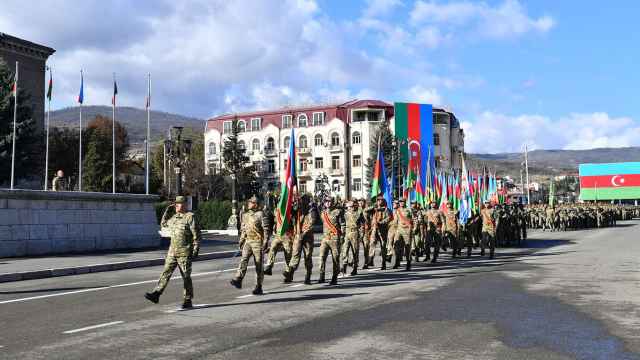Another Russian monopoly could undergo privatization this year. After announcements of plans to sell parts of, among others, the diamond company Alrosa and the country's second-largest bank VTB, the latter could play a crucial role in the privatization of a stake in Rostelecom, a land line national operator that might soon expand into mobile, boosting its valuation and, consequently, privatization prospects.
As the Cyprus banking crisis unravels and continues to drive high volatility in global markets, the privatization plans for many of Russia's state-owned blue-chip companies are scrapped and postponed for the coming year. However, talk of plans to privatize the state-controlled telecommunications giant Rostelecom has recently emerged, further reinforced by several relatively successful deals in the Russian telecom sector that point to relative price-resilience in the sector that make selling Rostelecom a relatively safe bet in these trying times. The Economy Minister Andrei Belousov commented, speaking at an investment forum, "if such a decision is supported, we could privatize (Rostelecom)", Dow Jones Newswires reports.
The rationale for prioritizing Rostelecom's privatization over VTB, Aeroflot or Moscow's main international airport Sheremetyevo is clear. Firstly, there is Alisher Usmanov's Megafon initial public offering in November of 2012 that, despite growing uncertainty about the fate of the Eurozone, successfully raised $1.7 billion. Megafon's initial public offering came only a month after Telefonica Deutschland, a leading German mobile operator raised $1.9 from investors in its initial public offering. Despite trading down on the first day, Megafon's public offering can be considered a successful one, making it Europe's second-largest offering in 2012. The resilience of telecom operators' valuations, it seems, is strong even in the face of continuing investor pessimism globally.
Enter Tele2 Russia. As it was announced on Friday, April 5, Russia's second-largest lender, VTB successfully acquired the Russian subsidiary of Swedish Tele2 telecom operator. As Renaissance Capital assessed in a note, VTB's acquisition of Tele2 Russia cellphone business for $3.55 billion is only the first step. As Rostelecom's long term strategy was to expand its mobile business between 2014 and 2016, the sale of Tele2's successful mobile business with a customer base of over 22 million subscribers made it the perfect acquisition opportunity for the planned expansion. However, instead of bidding directly, VTB took over the acquisition process and will likely resell Tele2 to Rostelecom within six to eight months. The biding process was highly contested as Rostelelcom's prospective competitors in the mobile business, OAO Mobile TeleSystems (MBT) and VimpelCom, attempted to prevent VTB's acquisition of Tele2 by offering a combined $4.25 billion to the Swedish telecom.
If Rostelecom does become the final buyer for Tele2's Russia, the merger of the two telecoms would create a leading national operator in both fixed-line and mobile sectors, merging Tele2's 22 million mobile users and Rostelecom 13 million mobile customers.
Recently, the head of the Federal Property Management Agency, Olga Dergunova announced officially that Rostelecom would be added to the privatization plans for this year, likely after it acquires Tele2 Russia in the early fall. This, however, raises questions of how the process of privatization will be done.
One possibility is the standard way for blue-chips of such size as Rostelecom, through an initial public offering on a foreign and a domestic stock exchange, thereby initially selling a smaller stake of around 10-15 percent. Such a process would offer most transparency to the sale process yet several developments indicate this might not be the way Rostelecom will be privatized.
Since the state previously announced plans of selling its entire 53 percent stake in the telecom, an IPO might not suffice the privatization appetites as Kremlin struggles to reach the ambitious targets it set itself to raise in 2013 through privatizations. Therefore, it is likely that a direct sale of the state's entire stake in Rostelecom will be the way Rostelecom will be privatized. Despite the size of the deal, potential buyers are already on the horizon. Arkady Rotenberg, the Russian businessmen and President Putin's close ally has already bought a substantial 10 percent stake in Rostelecom only a month ago, with a clear appetite for acquiring more, and the more the better, when the company goes on sale.
However, in organizing the sale, especially if it is a direct sale of the entire state's stake in Rostelecom, the organizers should be cautious of maintaining transparency and optimizing the state's position in the process. Memories of privatization processes of the 90's, when state assets were sold at substantially underpriced valuations to friends of the political leadership are still present and have mired the legitimacy of the regime that was in power at the time. While privatizing Rostelecom is certainly a step in the right direction for numerous reasons, it also has to be done for the right reasons — namely, selling it to ensure the biggest possible compensation for its current stakeholders, the Russian state and its taxpayers.
A Message from The Moscow Times:
Dear readers,
We are facing unprecedented challenges. Russia's Prosecutor General's Office has designated The Moscow Times as an "undesirable" organization, criminalizing our work and putting our staff at risk of prosecution. This follows our earlier unjust labeling as a "foreign agent."
These actions are direct attempts to silence independent journalism in Russia. The authorities claim our work "discredits the decisions of the Russian leadership." We see things differently: we strive to provide accurate, unbiased reporting on Russia.
We, the journalists of The Moscow Times, refuse to be silenced. But to continue our work, we need your help.
Your support, no matter how small, makes a world of difference. If you can, please support us monthly starting from just $2. It's quick to set up, and every contribution makes a significant impact.
By supporting The Moscow Times, you're defending open, independent journalism in the face of repression. Thank you for standing with us.
Remind me later.





